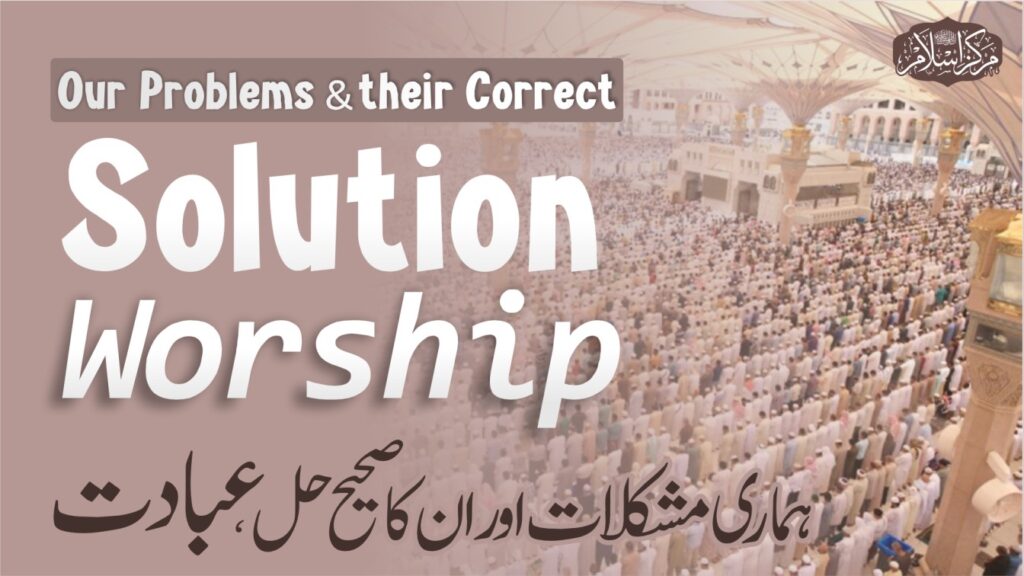Dhul-Hijjah is the twelfth month of the Islamic lunar year. The reason for its name is quite apparent—it is the month in which people perform Hajj (pilgrimage). The first ten days of this month are referred to in the Holy Qur’an as “Ayyām Ma‘lūmāt” (Appointed Days), and these days are very beloved to Allah Almighty.
Table of Contents
On the first of Dhul-Hijjah, the marriage of the Lady of the Universe, Sayyidah Fatimah al-Zahra (may Allah be pleased with her), the Chief of the Women of Paradise, took place with Sayyiduna Ali al-Murtaza (may Allah ennoble his countenance), the Lion of Allah.
The eighth of Dhul-Hijjah is called Yawm al-Tarwiyah (Day of Drawing Water) because the pilgrims would water their camels abundantly on this day so that they would not become thirsty on the Day of ‘Arafah. Alternatively, it is called Yawm al-Tarwiyah (Day of Reflection) because it was on the night of the eighth that Sayyiduna Ibrahim Khalilullah (our Prophet and upon him be peace) saw in a dream someone saying, “Allah commands you to sacrifice your son.” So in the morning, he reflected and pondered whether this dream was from Allah Almighty or from Satan—thus it is called the Day of Tarwiyah. The ninth of Dhul-Hijjah is called Yawm ‘Arafah (Day of Recognition), because on the night of the ninth, Sayyiduna Ibrahim (peace be upon him) again saw the same dream and recognized that it was indeed from Allah Almighty. On this day, the greatest ritual of Hajj is performed.
The tenth of Dhul-Hijjah is called Yawm al-Nahr (Day of Sacrifice) because it was on this day that the command to sacrifice Sayyiduna Isma‘il (peace be upon him) came to pass in symbolic form. This is the very day when Muslims around the world offer their Qurbani (sacrifices). The following days—the eleventh, twelfth, and thirteenth—are known as the Ayyām al-Tashrīq (Days of Drying Meat under the Sun). On the twelfth of Dhul-Hijjah, the embodiment of light and the Intercessor of the Day of Resurrection, the Holy Prophet ﷺ, established the bond of brotherhood between Sayyiduna Ali al-Murtaza (may Allah be pleased with him) and himself…
On the fourteenth of this month, Sayyiduna Ali (may Allah be pleased with him) gave his ring in charity while in the state of prayer. On the twenty-sixth of Dhul-Hijjah, revelation descended upon Sayyiduna Dawood (David, peace be upon him) regarding istighfār (seeking forgiveness)…
On the twenty-seventh occurred the tragic incident of Harrah, when the forces of Yazid attacked the blessed city of Madinah. And on the twenty-eighth of this same month, Sayyiduna Ali (may Allah be pleased with him) ascended to the position of Khilāfah (Caliphate)…
(Reference: ‘Ajā’ib al-Makhlūqāt, p. 46)
The Virtue of the Month of Dhul-Hijjah
The month of Dhul-Hijjah is one of the four sacred months that have been declared as months of sanctity in the Holy Qur’an. During these months, the reward for righteous deeds is multiplied many times over. Particularly, the first ten days of this month—referred to as “‘Ashrah Dhul-Hijjah”—are full of countless virtues and blessings. In these days, acts such as prayer, fasting, recitation of the Qur’an, glorification (tasbīḥ), declaration of divine unity (tahlīl), exaltation (takbīr), charity, and voluntary worship (nawāfil) earn immense reward.
To highlight the greatness of these days, Allah Almighty swore an oath by them in the Holy Qur’an:
وَالفَجرِۙ وَلَيَالٍ عَشرۙ
“By the dawn, and by the ten nights…”
(Surah al-Fajr: 1–2)
According to the commentators of the Qur’an, the “ten nights” mentioned here refer to the first ten nights of Dhul-Hijjah, within which fall sacred rituals such as sacrifice (Qurbani), the Day of ‘Arafah, and Hajj.
When I read these verses with my heart, it felt as though Allah Himself is calling His servants—inviting them:
“Come, and gather My special mercy during these days.”
The Oath of the Ten Days of Dhul-Hijjah
In Surah al-Fajr of the Holy Qur’an, Allah Almighty declares:
وَالفَجرِۙ وَلَيَالٍ عَشرۙ
“By the dawn, and by the ten nights.”
(Surah al-Fajr, 89:1–2)
According to the majority of Qur’anic commentators (mufassirīn), these ten nights refer to the first ten days of Dhul-Hijjah, which hold immense virtue and significance in Islam.
When Allah swears an oath by something, it is never trivial—rather, it is a divine way of drawing our attention, an invitation to recognize the worth of that time. These are the days during which the Hajj is performed, the Day of ‘Arafah arrives, sacrifices are offered, and the earth echoes with the call of Takbīr. During these days, every act of righteousness becomes most beloved to Allah.
I personally remember reciting these verses at dawn last year, and my heart was filled with a strange yet profound emotion. It felt as though Allah Himself was calling out to us:
“Come close to Me—these are the days in which even the smallest of deeds can earn magnificent rewards.”
Indeed, these ten days are for every servant who seeks the pleasure of Allah—whether one is physically performing Hajj or worshipping from their home. We should strive to make these days meaningful through simple acts like offering Fajr prayer on time, engaging in remembrance (dhikr), performing nawāfil (voluntary prayers), and giving in charity. Perhaps these very moments could become the means of our forgiveness and closeness to Allah.
Hadith on the Virtue of the Ten Days of Dhul-Hijjah
The Noble Prophet ﷺ said:
“ما من أيامٍ العملُ الصالحُ فيها أحبُّ إلى اللهِ من هذه الأيامِ”
“There are no days in which righteous deeds are more beloved to Allah than these days.”
(Sahih al-Bukhari)
This Hadith has always left a deep impression on my heart. Everyone is familiar with the spiritual intensity of Ramadan, but these ten days of Dhul-Hijjah… they often arrive silently and pass by quietly. Yet the Prophet ﷺ is telling us that during these days, every righteous deed—whether it is prayer, fasting, charity, remembrance (dhikr)—even something as simple as offering a smile—is especially beloved to Allah.
This Hadith, in a way, awakens us. It reminds us that there is still time—time to return, to reform, to earn. Personally, I feel these ten days should be seen as a kind of spiritual “sale season,” in which the reward for every good deed is multiplied many times over. That is why, whenever the first ten days of Dhul-Hijjah arrive, the heart naturally inclines toward fasting, the prayer beads (tasbīḥ) seem to find their way into the hands, and there is a special pull toward the Fajr prayer.
This Hadith is not just a declaration of virtue—it is a gentle and loving invitation:
“Come… do something special for your Lord.”
A Comparison Between the First Ten Days of Dhul-Hijjah and the Last Ten Nights of Ramadan
We are all well aware of the greatness of the last ten nights of Ramadan—especially Laylat al-Qadr, in search of which we worship with heart and soul. But what is truly astonishing is that, according to the sayings of the Noble Prophet ﷺ, the deeds performed during the first ten days of Dhul-Hijjah are even more beloved to Allah ﷻ!
Imam Ibn al-Qayyim (رحمہ الله) beautifully states:
“In terms of days, the first ten days of Dhul-Hijjah are the most virtuous; and in terms of nights, the last ten nights of Ramadan are superior.”
It’s as though the sun of virtuous days shines in Dhul-Hijjah, while the light of sacred nights glows in Ramadan.
When I first heard this, my heart paused for a moment. I had always considered Ramadan as the “spiritual spring season” of worship. Yet these ten days of Dhul-Hijjah carry an equally immense spiritual treasure—one that we often overlook. Just as there is a unique sweetness in staying awake and making heartfelt supplications during Ramadan nights, there is a special tranquility in fasting, giving charity, and engaging in dhikr (remembrance) during the days of Dhul-Hijjah.
It feels as if our Lord wants us to remember Him—both in daylight and darkness—but through different seasons and in different ways.
Sunnah Dhikr and Duas for the First Ten Days of Dhul-Hijjah
The most beautiful way to absorb the blessings of the ten days of Dhul-Hijjah is through the remembrance (dhikr) of Allah. The Noble Prophet ﷺ specifically encouraged the recitation of Takbir, Tahlil, and Tahmid during these days:
Allahu Akbar, Allahu Akbar, La ilaha illa Allah, wallahu Akbar, Allahu Akbar, wa lillahil-hamd.
(Allah is the Greatest, Allah is the Greatest, there is no deity except Allah, and Allah is the Greatest, Allah is the Greatest, and to Allah belongs all praise.)
These phrases are not merely verbal praises—they are awakenings of the heart. Whether they echo through the home in the early morning hours, or are whispered silently during a walk, they seem to draw the soul closer to its Creator. Whenever I’ve recited these words sincerely from the heart, I’ve experienced a unique peace—like Allah Himself is listening.
During these days, duas too carry special acceptance, especially the du‘a of the Day of Arafah:
“لَا إِلٰہَ إِلَّا اللّٰہُ وَحْدَهُ لَا شَرِیْکَ لَهُ، لَهُ الْمُلْكُ وَلَهُ الْحَمْدُ، وَهُوَ عَلٰی كُلِّ شَیْءٍ قَدِیْرٌ”
“La ilaha illa Allahu wahdahu la sharika lahu, lahu’l-mulku wa lahu’l-hamdu, wa huwa ‘ala kulli shay’in qadeer.”
(There is no god but Allah, alone without partner. To Him belongs the kingdom and all praise, and He has power over everything.)
The Prophet ﷺ said that this is the best du‘a to recite on the Day of Arafah. For me, this supplication has always been a source of comfort—especially in moments when the heart feels heavy, or when words fail me. These phrases feel like a cry straight from the soul to its Lord: “I am Your servant, and You are everything to me.”
Let us fill our hands and hearts with duas during these sacred days—for ourselves, our families, and for the entire Ummah.
Fasting During the First Nine Days of Dhul-Hijjah
Fasting during the first nine days of the blessed first ten days of Dhul-Hijjah holds immense reward. Umm al-Mu’minīn Sayyidah Ḥafṣah (RA) narrates:
The Noble Prophet ﷺ never used to abandon four things: fasting on the Day of ‘Āshūrā’, fasting during the [first] ten days of (Dhul-Hijjah)—that is, the first nine days—fasting three days in every month, and offering two rak‘ahs before the Fajr prayer.
(Mishkat, Hadith No. 18)
Anecdote
Imam Sufyan al-Thawri (رحمہ اللہ) said:
I was once in a graveyard in Basra during the nights of the ten days of Dhul-Hijjah. There, I witnessed radiant beams of light emerging from a grave. Seeing this, I was greatly astonished. At that very moment, a voice called out:
“O Sufyan al-Thawri! If you too fast for the nine days of Dhul-Hijjah, your grave will also radiate with such light.”
(Nuzhat al-Majālis, Volume 1, Page 144)
Anecdote
Sayyidah ʿĀ’ishah al-Ṣiddīqah (رضی اللہ تعالیٰ عنہا) narrates:
During the time of the Prophet ﷺ, there was a man who was fond of listening to music and singing. However, when the crescent of Dhul-Hijjah was sighted, he would begin to fast.
The Beloved of the Most Glorious, the Leader of the Messengers ﷺ summoned this man and asked:
“Why do you fast during these days?”
He humbly replied:
“O Messenger of Allah ﷺ, these are the days of Hajj, and it pleases me to hope that Allah ﷻ will include me in the supplications of the pilgrims.”
The Chief of the Prophets and Messengers ﷺ then said:
“For each day that you fast during these ten days, you shall receive the reward equivalent to freeing one hundred Muslim slaves, giving one hundred camels in charity, and donating one hundred horses in the path of Allah.”
“For the fast of Yawm al-Tarwiyah (8th Dhul-Hijjah), you will receive the reward of freeing one thousand slaves, giving one thousand camels in charity, and donating one thousand horses in the path of Allah.”
“And for the fast of Yawm ‘Arafah (9th Dhul-Hijjah), you shall be granted the reward of freeing two thousand slaves, giving two thousand camels in charity, and donating two thousand horses in the path of Allah. Moreover, the reward for the fasts of the previous year and the coming year will also be recorded for you.”
(Ghuniyat al-Ṭālibīn, Volume 2, Page 25)
The Fast of ‘Arafah
Among the days of Dhul-Hijjah, the Day of ‘Arafah holds immense sanctity. Fasting on the Day of ‘Arafah wipes out the sins of the previous year and the coming year. However, this virtue is for those who are not in the state of Ihram. A person who is in Ihram (i.e., a pilgrim) should not fast on the Day of ‘Arafah so that he does not become weak and unable to perform the rituals of Hajj properly.
(Mā Thabata min al-Sunnah, p. 179)
Anecdote
A saint once saw a dream in which the Day of Judgement had been established. He narrates:
“I saw ten beams of light in front of my friend, while I could only see two lights in front of myself. This surprised me. Then it was said to me: ‘Your friend fasted on the Day of ‘Arafah for ten years; hence he has ten lights before him. You fasted for only two years, which is why there are only two lights in front of you.’”
(Nuzhat al-Majālis, Volume 1, p. 144)
The Virtue of the Day of Sacrifice (Yawm al-Nahr)
While the entire first ten days of Dhul-Hijjah are filled with light upon light, each deed rewarded beyond measure, the tenth of Dhul-Hijjah—the Day of Sacrifice—is the most exalted of all. Allah, the Majestic and Exalted, swore an oath by the dawn of this day in the Qur’an:
“By the dawn…” (Surah al-Fajr: 1)
Many commentators interpret this as an oath upon the dawn of ‘Eid al-Adha, signifying its profound spiritual status.
On this blessed day, every good deed holds great merit, but the most beloved act to Allah is the act of sacrifice.
The Beloved of the Lord of the Worlds ﷺ said:
“The son of Adam does not do any deed on the Day of Sacrifice more beloved to Allah than the shedding of blood (sacrifice). Verily, it (the sacrificed animal) will come on the Day of Judgment with its horns, its hair, and its hooves. And indeed, the blood (of the animal) reaches Allah before it even touches the ground. So be joyful when performing it.”
(Mishkāt, p. 138)
The noble Companions رضي الله عنهم once asked the Prophet ﷺ:
“O Messenger of Allah! What are these sacrifices?”
He ﷺ replied:
“It is the Sunnah of your father, Ibrāhīm (peace be upon him).”
They then asked:
“O Messenger of Allah, what reward is there for us in it?”
He ﷺ responded:
“You will be rewarded with a good deed for every single hair on the animal.”
They further asked:
“What about the wool, O Messenger of Allah?”
He ﷺ said:
“You will receive a good deed for every strand of wool as well.”
(Mishkāt, p. 129)
From this noble hadith, it becomes evident that offering a sacrifice on the Day of ‘Eid is the most virtuous act. It is wājib (obligatory) upon every financially capable Muslim man and woman to offer this sacrifice and seek immense reward in the Divine Court of Allah.
سبْحَانَ ذِي الْعِزَّتِ وَالْجَبَرَوْتِ سَبْحَانَ ذِي الْقُدْرَةِ وَالْمَلَكُوتِ سُبْحَانَ ذِي الْحَيَ الَّذِي لَا يَمُوْتُ لَا إِلَهَ إِلَّا هُوَ یحْيِي وَيَمُوتُ وَ هُوَ حَيْ لَا يَمْوْتُ سَبْحَانَ اللَّهِ رَبِّ الْعِبَادَةِ وَالْبَلَادِ وَالْحَمْدُ لِلَّهِ كَثِيرًا طَيِّبًا مُبَارَكًا عَلَى كُلِّ حَالِ اللَّهُ أَكْبَرُ كَبِيرًا رَبَّنَا جَلَ جَلَالَهُ وَ قَدْرَتُهُ بِكُلِّ مَكَانٍ
Whoever prays these special voluntary prayers in the nights of Dhul-Hijjah and makes du‘ā (supplication) after them will be rewarded as if they have performed Hajj at the Sacred House (Ka‘bah). It is as if they have visited the radiant shrine of the Prophet ﷺ himself.
If one prays these prayers every night of the ten nights of Dhul-Hijjah in the same manner, Allah will admit them into the highest Paradise (Firdaus al-‘Ala), erase their sins, and command: “Begin your deeds anew.”
(Ghaniyat al-Talibin, Vol. 2, pp. 26, 35)
Special Voluntary Prayer on Fridays of Dhul-Hijjah
Whoever offers six rak‘ahs of voluntary prayer on the Friday of Dhul-Hijjah, and in each rak‘ah recites after Al-Fātiḥah:
Qul Huwa Allahu Ahad (Surah Al-Ikhlāṣ) fifteen times,
then after completing the prayer says:
Lā ilāha illā Allahul Malikul Ḥaqqul Mubīn ten times,
and recites Durood Sharif ten times, Allah will not admit anyone into Paradise before them.
Voluntary Prayers on the Night of ‘Arafah (9th Dhul-Hijjah)
The Master of the Prophets ﷺ said:
Whoever prays one hundred rak‘ahs of voluntary prayers on the night of ‘Arafah, reciting in each rak‘ah after Al-Fātiḥah Qul Huwa Allahu Ahad once or three times, Allah will forgive all their sins and build for them a magnificent house in Paradise.
In another narration, it is mentioned that if one prays two rak‘ahs on the night of ‘Arafah, reciting after Al-Fātiḥah in the first rak‘ah Āyat al-Kursī one hundred times, and in the second rak‘ah Qul Huwa Allahu Ahad one hundred times, then on the Day of Judgment Allah will forgive seventy people because of the blessing of this prayer.
Voluntary Prayers on the Night Before Eid (10th Dhul-Hijjah)
Whoever prays twelve rak‘ahs of voluntary prayer on the pre-dawn hours of the 10th of Dhul-Hijjah, reciting after Al-Fātiḥah Qul Huwa Allahu Ahad fifteen times in each rak‘ah, will gain the reward of seventy years of worship and be cleansed of all sins.
Another prayer of this night consists of four rak‘ahs in which, after Al-Fātiḥah in each rak‘ah, one recites once:
- Qul Huwa Allahu Ahad
- Qul A‘ūdhu bi Rabbil-Falaq
- Qul A‘ūdhu bi Rabbin-Nās
After the prayer, one recites seventy times Subḥānallāh and seventy times Durood Sharif. This will result in the forgiveness of all one’s sins.
Voluntary Prayers After Sacrifice on the Day of Eid
After performing the sacrifice on the day of Eid, if a Muslim offers four rak‘ahs of voluntary prayer at home, reciting in:
First rak‘ah: after Al-Fātiḥah Sabḥa Ism Rabbika al-A‘lā (Surah Al-A‘lā) once,
Second rak‘ah: after Al-Fātiḥah Wal-Shams once,
Third rak‘ah: after Al-Fātiḥah Wal-Layl once,
Fourth rak‘ah: after Al-Fātiḥah Al-Waqi‘ah once,
then they will be granted the reward of reciting from the heavenly books.
If one offers two rak‘ahs of voluntary prayer after the sacrifice and recites Wal-Shams five times in each rak‘ah after Al-Fātiḥah, they will be counted among the reward of the pilgrims and their sacrifice will be accepted.
For Those Unable to Afford Sacrifice
The noble Companions رضي الله عنهم asked the Messenger of Allah ﷺ:
“O Messenger of Allah, if someone is poor and cannot afford to offer a sacrifice, what should they do?”
He ﷺ replied:
“They should pray two rak‘ahs of voluntary prayer after the Eid prayer at home, reciting Surah Al-Kawthar three times in each rak‘ah after Al-Fātiḥah. Allah, the Exalted, will grant them the reward equivalent to the sacrifice of a camel.”
(Rāḥat al-Qulūb)
This informative and spiritually enriching blog is the result of the compilation and authorship of Hazrat Pir Abu Nauman Rizvi Saifi Sahib, who continues to guide the Muslim Ummah with sincerity and devotion on matters of faith and spirituality.If you found this article beneficial and insightful, we humbly request you to share your valuable thoughts in the comments below. Kindly share it with your friends, family, and others, so that this message may reach as many hearts as possible.If you would like to see this blog series continue, please let us know in the comment section below—we would love to hear from you.





This simply matchless message 😉